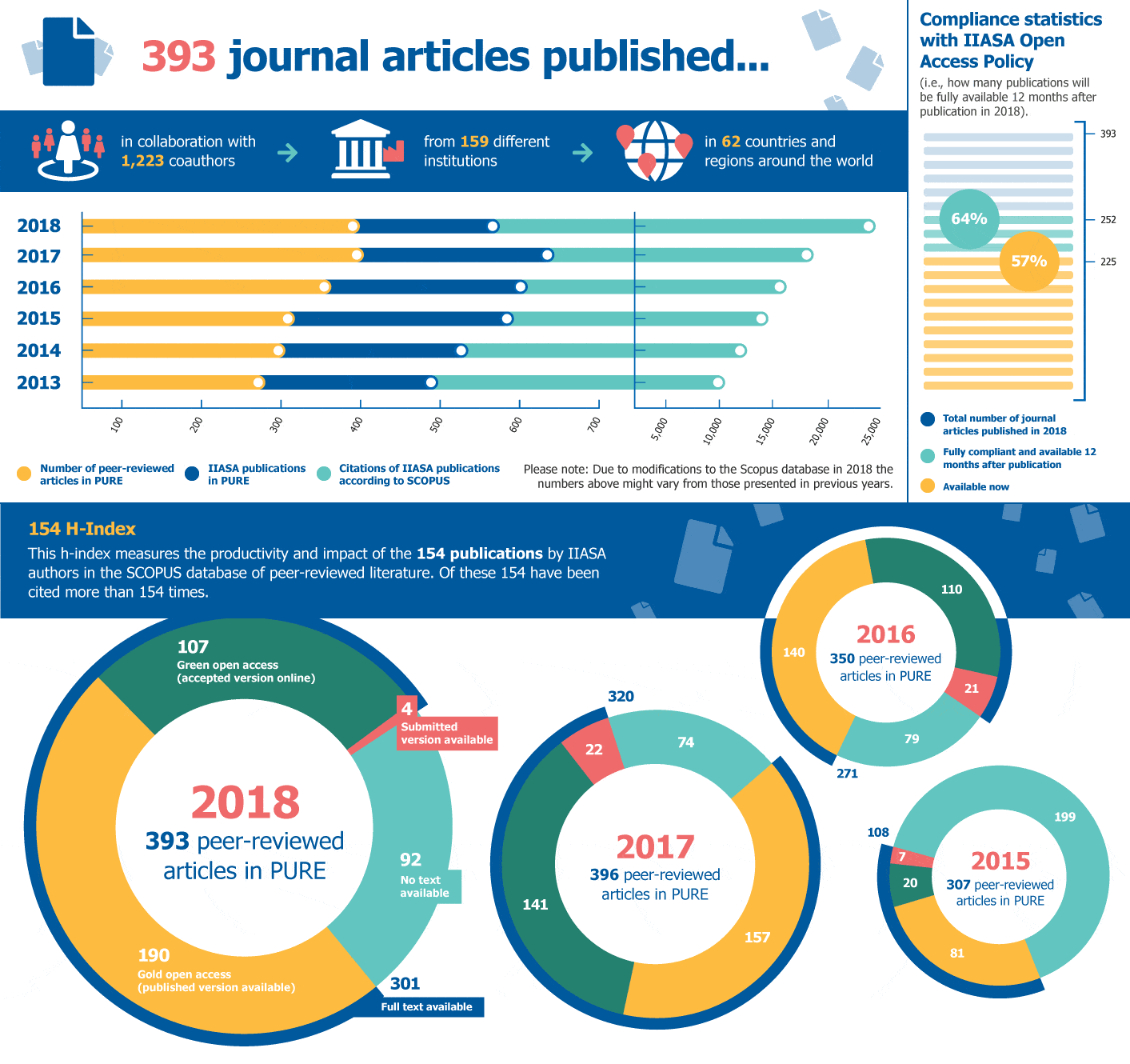Publications and open access
The IIASA scientific publications and copyright policy sets forth the principles governing the various types of publications used by the institute to communicate its research results to outside audiences and aims to facilitate the widest possible dissemination of the institute’s work. The policy was reviewed in 2018 to also cover copyright and funder acknowledgments and is pending internal approvals.
The open access to publications policy requires that all IIASA authors deposit a complete version of their peer-reviewed research articles in the IIASA institutional repository (PURE) to ensure that it is freely accessible within a year of the online publication date. This can either be the published version of the paper (known as gold open access), or the accepted version of the paper (known as green open access).
Of the 393 journal articles published in 2018, 225 have a publicly available full text version in PURE. A total of 76 are currently under embargo and 92 entries have no paper attached. As of January 2019, 64% of articles published in 2018 will be fully available after twelve months and will be compliant with the open access policy. In 2018, there were 339,156 downloads from PURE, compared to 252,129 the previous year.
IIASA has publishing agreements with major publishers like Springer, Wiley, Taylor and Francis, and MDPI which allow for a discount on article processing charges or enable open access publishing without additional costs for authors affiliated with IIASA.
Open access to data
In November 2018 the IIASA Council approved a policy on open access to data. This policy encourages publishing research data produced by IIASA researchers while adhering to the requirements of member countries and funding bodies. To fulfil the policy’s requirements an institutional research data repository, DARE, was developed during 2018 and was launched in February 2019. Deposited data will receive a persistent citable identification URL and will remain openly accessible and stored for a minimum of 10 years according to IIASA policy or as long as is mandated by the funding body. This will help researchers with the reproducibility, traceability, and validation of critical research produced by IIASA.
